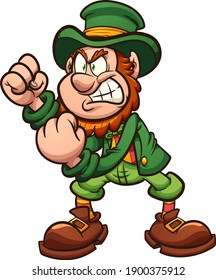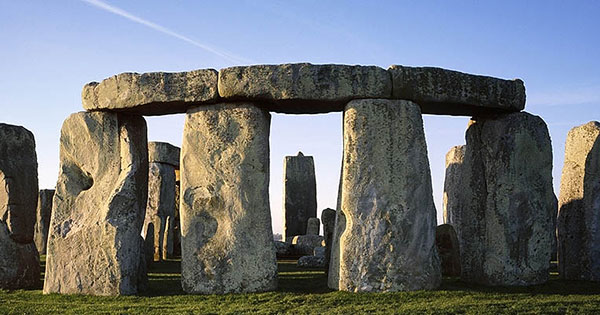
Part One: Albion Rising - In Fire and Blood, a Nation is Forged
Chapter I: Ruled Britannia: The First Conquest of Britain
Timeline: Approx 6,000 BC - 87 AD
There are certain sectors of English society who believe, rather naively or perhaps in a pig-headed way, that they are “true” Englishmen, original inhabitants of England, proper English and the only pure English. They are, of course, wrong; as is the case with just about any country, the original population are long gone, destroyed or gone extinct, they have vanished into the mists of time with often very little to mark their passing. I mentioned in my History of Ireland journal that even the Celts, seen by many as the original Irish, are not the first to have lived on the island, and so it is with the English*. Although the island (not an island at the time, as I’ll explain in a moment) has been occupied for about a million years, in common with every other habitation of humanity we have no written records to go on, and must glean the scant details of these disappeared civilisations through the artefacts and structures they left behind.

With stone tools and footprints thought to date back 900,000 years on the Norfolk Coast, this makes that area the oldest known part of England to have been inhabited by humans, Sussex providing the oldest human fossils (about 500,000 years old) and Neanderthal fossils found in Kent which date back 400,000 years, it’s clear England was occupied long before human history began being recorded, and this is probably, almost certainly, true of any country you look at. Possibly fleeing from advancing ice and rising seas, for about 120,000 years England was unoccupied by humans, with Neanderthals coming back about 40,000 years ago but only lasting a mere 20,000 years before becoming extinct. With the end of the last ice age, about 11,700 years ago (ah I remember it as if it were only yesterday!) modern humans, or Homo Sapiens, repopulated England and have remained ever since.
For a long time, as alluded to a short while ago, England and indeed Ireland were connected to the mainland of Europe by a chalk ridge known as the Weald-Artois Anticline, which ran from southeast England to southern France, but rising sea levels as ice sheets melted and glaciers retreated, about 425,000 years ago, swamped the bridge and no longer made it possible for Englishmen to pop over to France by way of Shank’s mare. In place of the Weald-Artois Anticline was the English Channel, and as this now made of England an island, it was effectively cut off from the technological and cultural advances taking place in Europe at the time. Paul Pettitt and Mark White writing about Britain call it, rather fatalistically and quite dramatically, an island of the living dead.
 * Note: though much of this concerns the history of Britain as an island, I'm mostly going to refer to the inhabitants as English where I can, as I want to differentiate them from the Scottish and the Welsh, with whom this history is not concerned. Initially though, they're all going to be called the Britons, because, well, that's what they were called back then.
Pytheas of Massalia (fl 310 - 306 BC)
* Note: though much of this concerns the history of Britain as an island, I'm mostly going to refer to the inhabitants as English where I can, as I want to differentiate them from the Scottish and the Welsh, with whom this history is not concerned. Initially though, they're all going to be called the Britons, because, well, that's what they were called back then.
Pytheas of Massalia (fl 310 - 306 BC)
The first written records of England come from the Greek navigator Pytheas, covered in my World Exploration journal, from which I’m going to shamelessly paste the article concerning him.
Pytheas is said to have travelled south to Spain and Portugal, and thence across to Britain and Ireland, becoming perhaps the first one to use the word “Britain” for the island country. His impressions of the British seem to indicate that he found the land cold and wet (
quelle surprise!) which to a native of France would be quite a shock, that the people lived in thatched cottages and were ruled by many kings - another odd thing to a democratic Greek - but were at heart a simple people who lived in peace with each other. When they did war, he says, they rode in chariots just like his own people.
(From
The Men Who Drew the Map of the World)
The origin of the word Britain is disputed, but seems to have been coined by Pytheas (or at least, he seems to have been the first to use it) to denote a “people of forms”, meaning that the British understood and used pictures and shapes, as they tended to tattoo their bodies for war or decoration. He described three “corners of Britain”, these translating as Kent, Orkney and Cornwall. By this point the English are already what could be called civilised, as engaging in commerce. They make tin ingots and sell them in France and other countries, and as they have to deal with buyers Pytheas says they are quite approachable.
There’s probably a lot more to be said about Neolithic Britons, but who cares about them? They couldn’t even be bothered to leave us any written record, so fu
ck them. The next period therefore in which we’re interested in some thousands of years later.
Settling Down (200 BC - 43 AD)
Expansion by the Roman Empire forced refugees from Gaul to migrate towards England, and probably Ireland too, bringing with them their Celtic language and customs, and also sophistication to the English way of life, Kent, Hertfordshire and Essex becoming the centre of the pottery trade around 175 BC, with iron bars replacing, um, whatever they had been using as currency up to that from about 100 BC.
What's quite interesting about this is that unlike we Irish, who knocked seven bells out of the original Celts and then snaffled their country (Go Tuatha!) England does not seem to have proceeded along the same lines at all, with their peoples moving to and from Britain as it got colder or harder to live there, and returning when the weather or the living conditions improved. Nobody seems to have kicked anything out of anyone, and really, for a country that ended up being the bully of the world for a very long time, the top dog and the one all others would bow and scrape to (while secretly plotting their overthrow beneath the doffed cap, so to speak) that's quite remarkable. So other than the likes of Neanderthals and so on going extinct, there was no major shift as to who controlled England. Makes
us like the aggressive ones!

As temperatures began to rise and weather improve around about 5,000 – 6,000 BC, the hunter-gatherer population began to settle down a little more, and some animals, like the dog, were domesticated. DNA in human remains seems to indicate the migration of people from what would become Finland and Estonia, as well as other European countries, so it could possibly be said that the first real Englishmen were in fact what are now considered by certain sectors of their society as “foreigners”. Take
that, English Defence League! Around 4,500 BC the idea of farming and raising crops seems to have been considered a good one, and more settling down occurred as the woodlands grew and hunting became more difficult. In fact, a program of extensive deforestation began around 4,300 BC to provide more land for crops and farming.

The original inhabitants of Britain were soon supplanted by what were known as the Beaker people. No, not
them! These people came from all over Europe, and are so-called due to their creation of and usage of the inverted bell-shaped beaker which became prevalent everywhere. I don’t know, but I presume the precursor to that was a normal tumbler-style thing? Not sure, but anyway this is the reason they were called that, and by about 2400 BC they had more or less taken over Britain. They were able to exploit the vast reserves of tin in England, especially in Cornwall and Devon, and this provided them something to trade with other countries, and a form of commerce began.

Evidence of a certain belief in some sort of religion began around 2,500 BC – 2.000 BC, when huge stone monuments, burial chambers and possibly sites of religious worship, began to appear all over Britain. The most famous of these of course is Stonehenge, still a popular attraction in England today. Nobody has ever been able to work out definitively what Stonehenge was intended for - some say burial mounts, some say a place of worship, others say something to do with astronomy or even a place to gather at certain times such as the Summer and Winter Solstice (June and December 21 respectively). In addition to burying their dead the Britons also cremated them, with the urns then buried in cemeteries.
Manufacturing processes were changing too. From around 2150 BC British people learned to smelt copper and then bronze, heralding the arrival of what is known as the Bronze Age in Britain. As the previous age, the Stone Age, receded then, bronze became the go-to material, replacing stone in things such as weapons and tools until about 750 BC, when this great new thing was imported from Europe. They called it iron, and it was even stronger than bronze, making better weapons and better agricultural implements, and so improving the lives of the Britons and ushering in (say it with me) the Iron Age. This saw the organisation of people into clans headed by chieftains, and almost by default, the first proper wars between tribes.
They would soon have a new and powerful enemy to fight though, and would have to band together and forget old enmities, or perish under the onslaught of the greatest empire the world had ever seen.